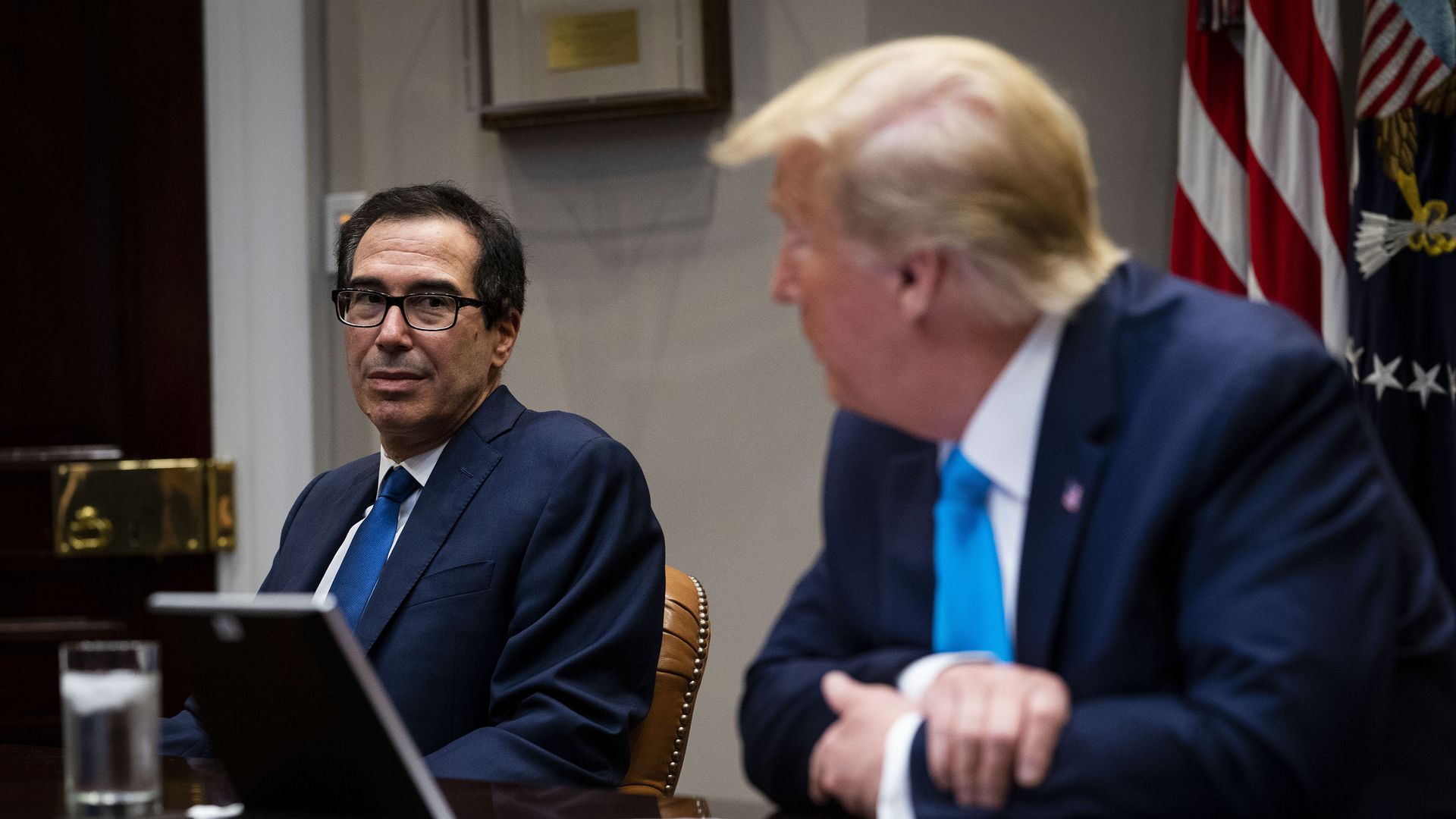Dec 28, 2020 - Politics & Policy
How Trump caved on the coronavirus relief bill
Add Axios as your preferred source to
see more of our stories on Google.

Treasury Secretary Steven Mnuchin with Trump in April. Photo: Doug Mills-Pool/Getty Images
Add Axios as your preferred source to
see more of our stories on Google.

Treasury Secretary Steven Mnuchin with Trump in April. Photo: Doug Mills-Pool/Getty Images